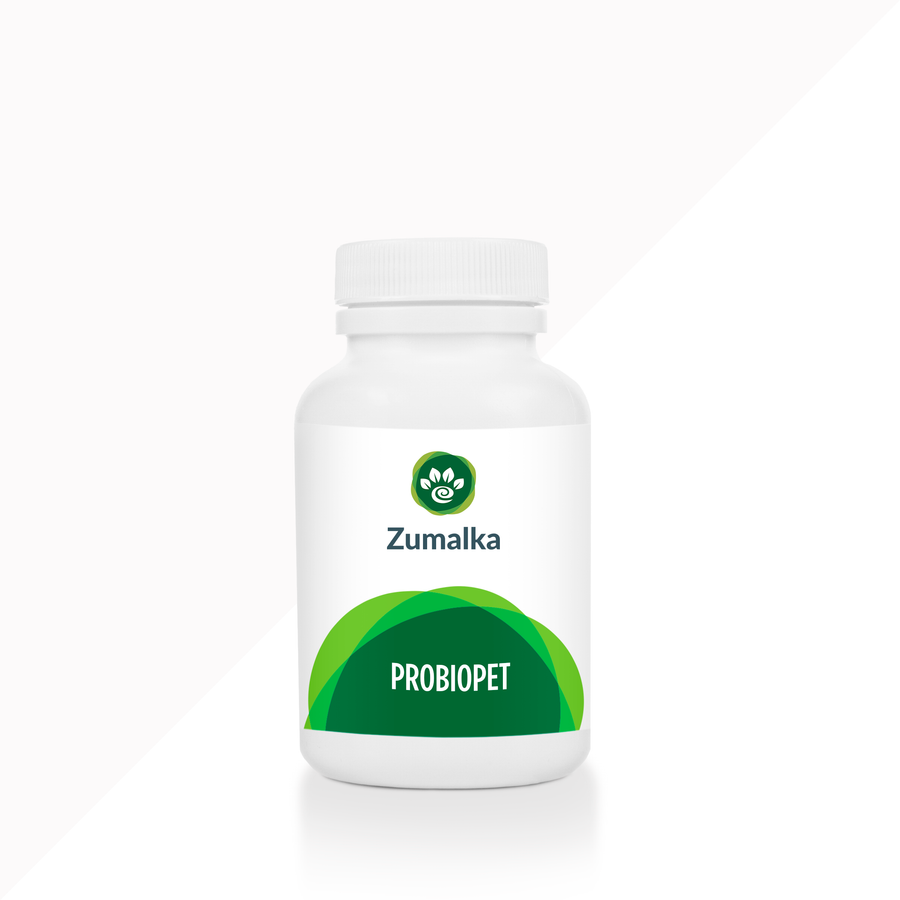Why the Best Vegan Pet Food May Not Meet Your Dog’s Needs

If you're like most pet owners, the health and wellness of your dog is no doubt your top priority. In particular, one crucial aspect of your canine family member's well-being is the food they eat.
Chances are you've heard about the rise of vegan dog foods in the market. But is switching to a vegan diet really the best option for your dog? As an animal homeopathy expert and a dedicated dog mom, I’ve made it my mission to explore this question thoroughly to ensure my pet—and yours—gets the very best.
That’s why I’ve put together this article: to determine whether vegan dog food should be on your pet’s meal plan. I’m not here to criticize vegan food for dogs in any way. As a fellow dog mom, my goal is simply to ensure that our pets eat only the right things to give them the quality of life they truly deserve.
Defining "Vegan Dog Food"
At its simplest, "vegan dog food" refers to dog food made entirely from plant-based ingredients. This type of food is meticulously formulated to provide dogs with all the essential nutrients they need, without relying on meat or animal by-products like eggs, dairy, or similar components.
Commercial vegan dog food brands commonly use plant proteins derived from oats, barley, potatoes, quinoa, soy, chickpeas, and lentils. Oils and fats are typically sourced from coconut, flaxseed, and sunflower. Antioxidants, fiber, and vitamins come from fruits and vegetables such as apples, blueberries, spinach, and sweet potatoes.
In sum, a vegan diet for dogs aims to provide all the essential nutrients without relying on animal-based ingredients. But the question remains: is a plant-based diet truly the best choice for your furry companion?
Vegan vs. Vegetarian: Are They Really the Same?
Contrary to popular belief, vegetarian and vegan diets are not the same. While both avoid meat, they differ in their approach to other animal products. A vegetarian regimen, though considered a plant-based diet, still includes items like honey, eggs, and dairy products such as yogurt and cheese.
On the other hand, it’s important to note that all forms of vegan diets avoid meat and animal by-products. These diets often use alternatives like sweet potato jerky, pea protein, and other substitutes to provide essential nutrients.
What Vegan Dog Food Brands Aren’t Telling You

Interestingly, there are already many vegan dog food brands on the market. In addition to offering plant-based diets and treats for dogs, like potato protein and sweet potato jerky, they claim to provide alternatives that ensure your pet gets all the nutrients needed for a healthy, happy life.
But here's the thing: did you know that while dogs can eat plant-based foods, they thrive best on meat-based protein for their overall well-being? Although vegan dog food may include high-quality, non-GMO ingredients, the challenge is that these products alone may not be sufficient to meet a dog's complete nutritional needs.
While pet owners who prefer a plant-based diet for their dogs might argue that canines are facultative carnivores (unlike felines, which are obligate carnivores and need meat to survive), there are still certain essential nutrients that vegan options alone may not provide.
I want to reiterate that this blog post is not intended to criticize vegan products for cats and dogs. In my experience as an animal homeopathy expert and dog mom, ensuring that pets receive the right nutrition is a paramount responsibility. Failing to consider this can lead to deficiencies or other serious health issues for your dog.
7 Crucial Reasons Why a Vegan Diet Isn’t Suitable for Dogs

While it’s your prerogative to choose the best food for your pet, there are important factors about vegan products that you need to consider. Here are a few reasons I’ve discovered why a plant-based diet may not be ideal for your dog:
#1. It may lack essential amino acids, vitamins, and minerals.
Unlike felines, which are obligate carnivores, dogs are classified as facultative carnivores. This means they can thrive on both animal-based and plant-based food options. While plant-based dog food can meet their nutritional needs, it will only be effective if the required nutrients are provided in the correct amounts.
Puppies, juveniles, and adult dogs all require a balanced intake of nutrients from their food. While ingredients like sweet potato, brown rice, lentils, and chickpeas are high in protein, they must be carefully balanced to meet the unique dietary needs of each dog, regardless of age, sex, or breed.
Similar to human diets, a dog's diet should be adjusted to provide optimal amounts of nutrients. Certain key nutrients, such as cobalamin (vitamin B12), taurine, and essential amino acids like L-carnitine, are more readily available from animal sources. While plant-based ingredients can provide some healthy fats, these tend to be in smaller amounts compared to animal-based options.
#2. It may trigger digestive issues.
While I respect pet parents who aim to transition their dogs to a plant-based diet, some dogs may struggle to process and absorb nutrients from plant-based ingredients. As a result, they could lack the essential nutrients their bodies need to remain healthy and happy.
Although it is often argued that plant-based dog food is formulated to meet nutritional requirements, your pet may still have difficulty digesting these ingredients. Along with bloating, your dog may also experience vomiting or diarrhea.
As pet parents, ensuring that our dogs can properly digest their food should be a top priority. Otherwise, both you and your pet could face health problems sooner than expected.
#3. It may not be palatable to your pet.
Meat and animal by-products have always been a staple in the biological makeup and ancestral diet of dogs. Whether it’s dry or wet food, dogs are naturally inclined to prefer diets that include meat, organs, and other ingredients sourced from animals. While a vegan diet may provide similar nutritional value, it may not be as palatable to your dog.
Vegan dog food brands may aim to provide appealing options for our canine companions, but the absence of meat and animal by-products might reduce your dog’s appetite. This can lead to serious issues such as sudden weight loss, malnutrition, and hormonal imbalances, which could compromise your dog’s overall health.
While the absence of artificial preservatives, gluten, and grains can benefit your dog, these advantages are meaningless if your pet doesn’t enjoy a plant-based diet.
#4. It may cause long-term health risks.
From my experience as an animal homeopathy expert and a dog mom, I’ve learned that most diseases in dogs develop gradually rather than instantly. Dietary choices play a crucial role in this, and while some dogs thrive on a vegan diet, others may struggle with its taste, leading to potential nutritional deficiencies over time.
Without careful management, this can weaken their immune system and contribute to the development of chronic health issues.
Although dog food formulated for vegan diets is designed to cover essential amino acids, vitamins, and minerals, some dogs may still face long-term health risks if they aren’t consistently getting the right nutrients in every meal.
These conditions include rickets (caused by a lack of vitamin D), scurvy (lack of vitamin C), hypovitaminosis A (lack of vitamin A), pansteatitis (lack of vitamin E), hypocalcemia (lack of calcium), dilated cardiomyopathy (lack of carnitine or taurine), and anemia (lack of iron), among others.
#5. It can be more expensive.
Vegan dog food options tend to be more expensive than their non-vegan counterparts due to the special ingredients and preparation involved. Regardless of whether it’s dry or wet food, vegan alternatives are often gluten-free, grain-free, and free from artificial preservatives, all of which contribute to higher prices.
Another important consideration is that vegan dog food may not be readily available in all areas. This could be an issue if your dog becomes accustomed to a specific brand, and then you’re unable to find it in your local pet store.
#6. It lacks scientific evidence.
While dogs can digest nutrients from both animal- and plant-based diets, there are no long-term studies on the viability and benefits of vegan diets for dogs.
A 2021 study published in BMC Veterinary Research reported that vegan dog food may still meet the nutritional needs of canines. However, ensuring these needs are met can be more cumbersome and expensive, as supplementation may be required to provide all necessary nutrients.
For example, if your dog requires higher protein levels for optimal health, you may need to supplement their vegan diet, as products like kibble and treats may not provide sufficient protein. The same consideration applies to vegan diets for cats.
While adopting a vegan diet for your dog may be a healthy and environmentally friendly choice, the absence of long-term studies on its viability and benefits could pose potential health risks to your pet.
#7. It may not be ethical.
For most pet owners, animal welfare is a top priority. Ensuring proper nutrition through dog food is one of the most crucial factors in maintaining the quality of life your pet deserves.
While switching to a more planet-friendly diet, such as a vegan regimen, is admirable, neglecting your dog's preferences and nutritional needs could lead to physical and mental health issues. No matter how specialized the dog food may be, if it doesn’t provide the necessary nutrition, it can jeopardize your pet’s health.
The Crucial Role of Digestive Health in Your Dog's Well-Being
Choosing the right dog food is just one aspect of providing your pet with the nutrition and care it deserves. Supporting your dog's digestive health can significantly contribute to its overall well-being, while also helping to maintain a strong immune system.
Zumalka's PROBIOPET is designed to maintain optimal probiotic levels in your dog's gut. Probiotics are living microorganisms that support a balanced digestive system, which in turn contributes to a strong immune system and overall well-being.
The high quality of this product's premium natural formula enhances the likelihood of optimal health for your pet by maintaining a healthy gut flora. Besides helping your dog effectively absorb nutrients from both plant-based and animal products, a healthy gut flora also supports a strong immune system.
With PROBIOPET, now is the perfect time to elevate your dog's digestive health to the next level.






Leave a comment